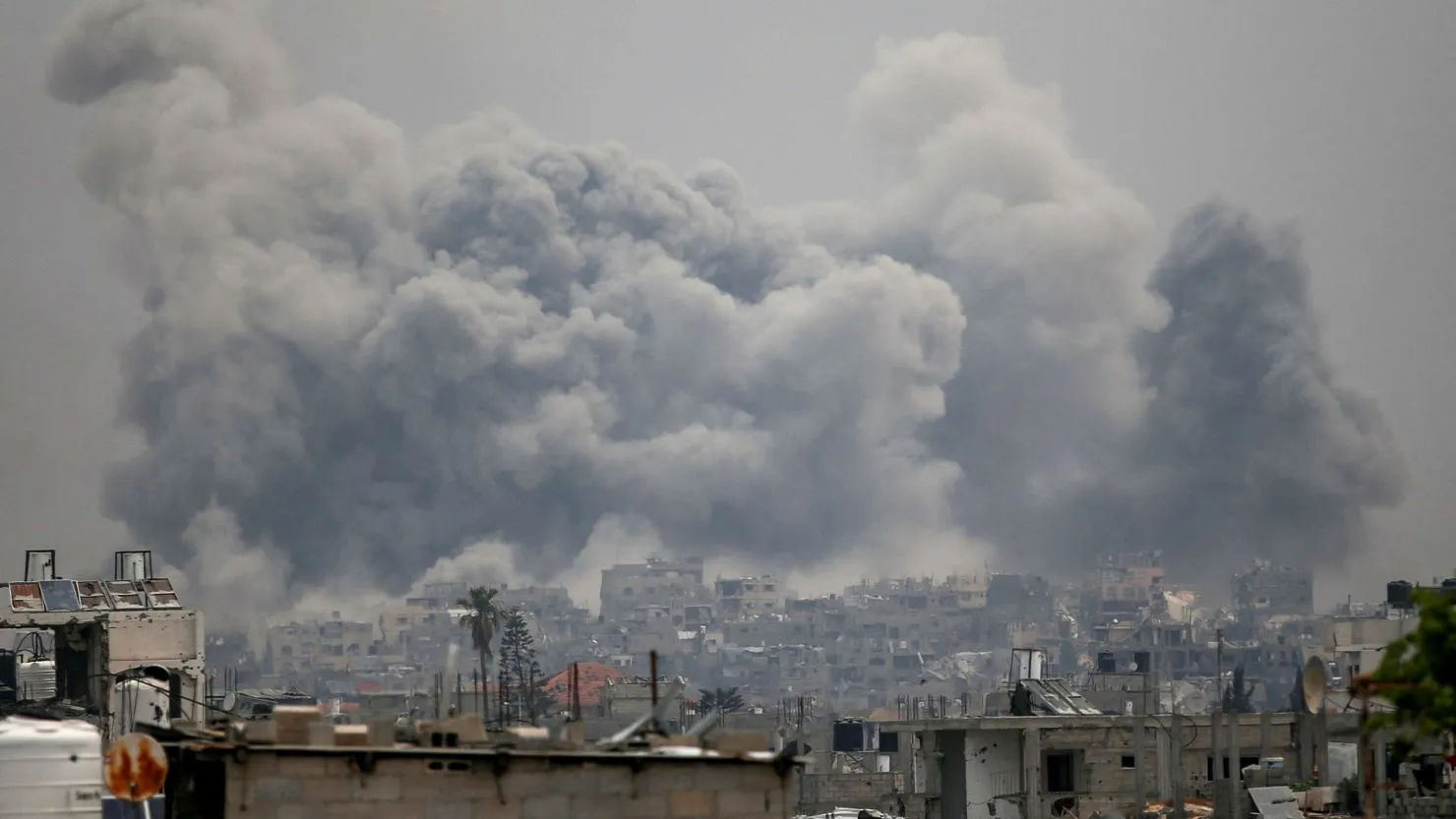Escalating Conflict: Israel Intensifies Strikes on Gaza Amid Trump’s ‘Freedom Zone’ Proposal
The ongoing conflict between Israel and Gaza has reached new heights this week, as Israeli airstrikes surged, leading to the tragic deaths of at least 80 individuals in the region. The situation has escalated further amidst a backdrop of political commentary from former President Donald Trump, who has suggested transforming the war-torn Gaza Strip into what he terms a ‘freedom zone.’
Increased Airstrikes and Civilian Casualties
Reports indicate that the Israeli Defense Forces (IDF) have ramped up their aerial bombardment in response to ongoing violence and rocket fire emanating from Gaza. The airstrikes, described as some of the most intense in recent history, have inflicted heavy damage on residential areas, infrastructure, and alleged militant positions within Gaza.
Medical sources in the region confirmed that the death toll includes many civilians, further exacerbating the humanitarian crisis that has plagued Gaza for years. Hospitals, already overburdened due to previous conflicts and the COVID-19 pandemic, are struggling to cope with the influx of casualties. The United Nations has issued statements condemning the strikes, highlighting the need for both sides to de-escalate and protect civilian lives.
Trump Proposes a ‘Freedom Zone’ for Gaza
Amid these developments, Trump has been vocal about his vision for Gaza, suggesting it could be redefined as a ‘freedom zone.’ In a recent statement made during a meeting in Qatar, Trump pitched the idea as a means to stabilize the area and foster peace. He implied that the U.S. could lead the charge in transforming Gaza into a region where freedom and democracy can flourish.
This proposal comes as a surprise to many, as Trump’s previous administration was marked by a staunch support of Israel and a critical stance on Palestinian groups. Critics argue that the notion of a ‘freedom zone’ oversimplifies the complex political and humanitarian issues facing Gaza, raising questions about feasibility and the practical implications of such a plan.
The Political Ramifications of Trump’s Statements
Trump’s comments have ignited a firestorm of debate in both American and Middle Eastern political arenas. Supporters of the proposal assert that it could provide a new framework for peace talks and economic rejuvenation in Gaza. They argue that traditional approaches have failed and that such an unconventional perspective could spur international interest and investment in the region.
However, detractors criticize the concept, pointing out that it may inadvertently overlook the needs and rights of the Palestinian people. Many question how a ‘freedom zone’ would be maintained, especially given the ongoing military operations and the deep-seated tensions that exist between Israel and various Palestinian factions.
The Humanitarian Crisis
As violence escalates, the humanitarian situation in Gaza continues to deteriorate. The international community has been increasingly alarmed by the living conditions faced by civilians in the region. With limited access to clean water, healthcare, and food supplies, the people of Gaza are caught in a dire predicament.
The United Nations has been vocal about the urgent need for aid and intervention, stressing that the ongoing conflict exacerbates an already challenging environment. NGOs working in Gaza have reported rising levels of psychological trauma among children, alongside food insecurity and inadequate health services.
Reactions from the Global Community
Reactions to the escalating violence and Trump’s proposal have been mixed globally. In the United States, political leaders from both parties have expressed concern over the rising death toll. Calls for an immediate ceasefire have resonated within Congress, with several members urging the Biden administration to take a more active role in mediating peace talks.
Meanwhile, in Europe and the Middle East, reactions have ranged from denunciations of Israel’s airstrikes as excessive to cautious endorsements of Trump’s idea, provided it aligns with a broader peace accord that respects Palestinian sovereignty.
The Arab League held an emergency meeting, condemning the violence and calling for international intervention. They reiterated the need for a two-state solution as a viable path toward peace.
History of the Israeli-Palestinian Conflict
Understanding the backdrop of the current events requires a brief look at the history of the Israeli-Palestinian conflict. The roots of this conflict date back to the early 20th century, characterized by deep historical grievances, territorial disputes, and cultural divides.
Since the establishment of Israel in 1948, Palestinians have experienced displacement while yearning for their own state, marked by recurrent cycles of violence. Efforts for peace, including the Oslo Accords and various UN resolutions, have produced limited advancements, and recent years have seen increasing tensions, especially following the U.S.’s decision to recognize Jerusalem as Israel’s capital.
The Role of the U.S. in Middle Eastern Peace Processes
The role of the United States has traditionally been seen as a critical component of any potential resolution to the Israeli-Palestinian conflict. U.S. administrations have aimed to mediate peace talks, often balancing between supporting Israel’s right to defend itself and addressing Palestinian aspirations for statehood.
Trump’s administration deviated from traditional norms, focusing heavily on Israel while sidelining Palestinian voices, a strategy that drew widespread criticism. The current Biden administration has sought to recalibrate U.S. involvement, advocating for renewed dialogue but facing significant challenges amidst ongoing violence.
Looking Ahead: Prospects for Peace
The prospects for peace in the region remain tenuous as airstrikes continue and tensions remain high. Trump’s suggestion of a ‘freedom zone’ may generate different interpretations, but any path forward requires the involvement of all relevant stakeholders, including the Palestinian authorities and civil society.
Moving forward, it will be essential for international actors to work collaboratively towards a diplomatic solution that acknowledges the complexities of the situation. Peace will not come easily, but dialogue founded on mutual respect and understanding may be the start to resolving one of the world’s most enduring conflicts.







